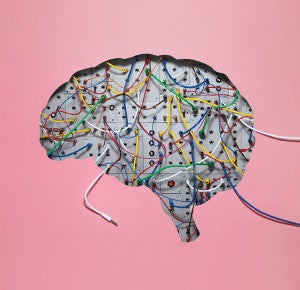LENS Health and Wellness
Damaged Connections
New Discoveries Chart Serotonin's Role in Brain Disorders
 IMAGE: ADAM VOORHES/GALLERY STOCK
IMAGE: ADAM VOORHES/GALLERY STOCK
Scientists have long known that the brain chemical serotonin plays a critical role in depression, anxiety, autism and other mental disorders. But how?
Roberto F. Galán, PhD, an assistant professor in the Department of Electrical Engineering and Computer Science at Case Western Reserve, and his team have answered part of that question with experiments and computational models that demonstrate what happens in the brain when serotonin is drastically reduced.
Galán and his team, including Pavel Puzerey, PhD (GRS '15, neurosciences), who worked in Galán's lab as a doctoral student, and Nathan Kodama, a senior majoring in physics, recorded activity from small circuits in mouse brains. That al lowed them to study both the interactions of clusters of neurons as well as isolated neurons to better understand how individual brain cells behave within the complex web of brain circuitry.

Roberto F. Galán, assistant professor
The researchers found that when the brain develops with only 80 percent of normal serotonin levels, neurons became excitable, firing off more electrical discharges, but to prevent the brain from becoming epileptic, neurons "pruned" many of their connections with other neurons. Without sufficient connections, neurons became partially isolated and the wiring in brain circuits became deficient, leading to cognitive and behavioral disorders that mirror those seen in depression and autism. Next on Galán's to-do list: delving into how groups of neurons interact within brain circuits.





